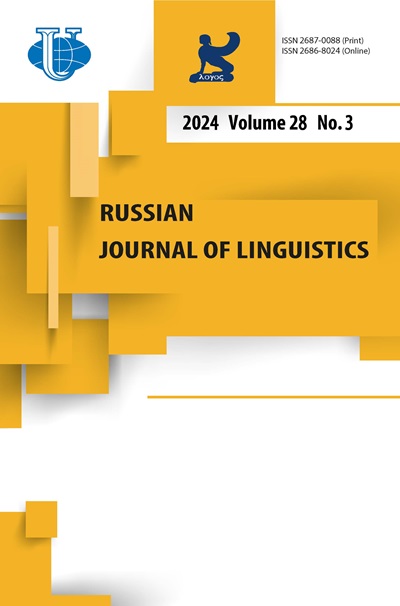Поиск
Выпуск
Название
Авторы
Концепты native speaker и носитель языка в английском и русском лингводидактическом научном дискурсе
Зооморфные метафоры в моделировании образа России: диахронический анализ американского медиадискурса
Влияние возрастного фактора на дискурс виртуальной языковой личности в англоязычных социальных сетях
- Ключевые слова чувствительны к регистру
- Английские предлоги и союзы игнорируются
- По умолчанию поиск проводится по всем ключевым словам (агенс AND экспериенцер)
- Используйте OR для поиска того или иного термина, напр. образование OR обучение
- Используйте скобки для создания сложных фраз, напр. архив ((журналов OR конференций) NOT диссертаций)
- Для поиска точной фразы используйте кавычки, напр. "научные исследования"
- Исключайте слово при помощи знака - (дефис) или оператора NOT; напр. конкурс -красоты или же конкурс NOT красоты
- Используйте * в качестве версификатора, напр. научн* охватит слова "научный", "научные" и т.д.













